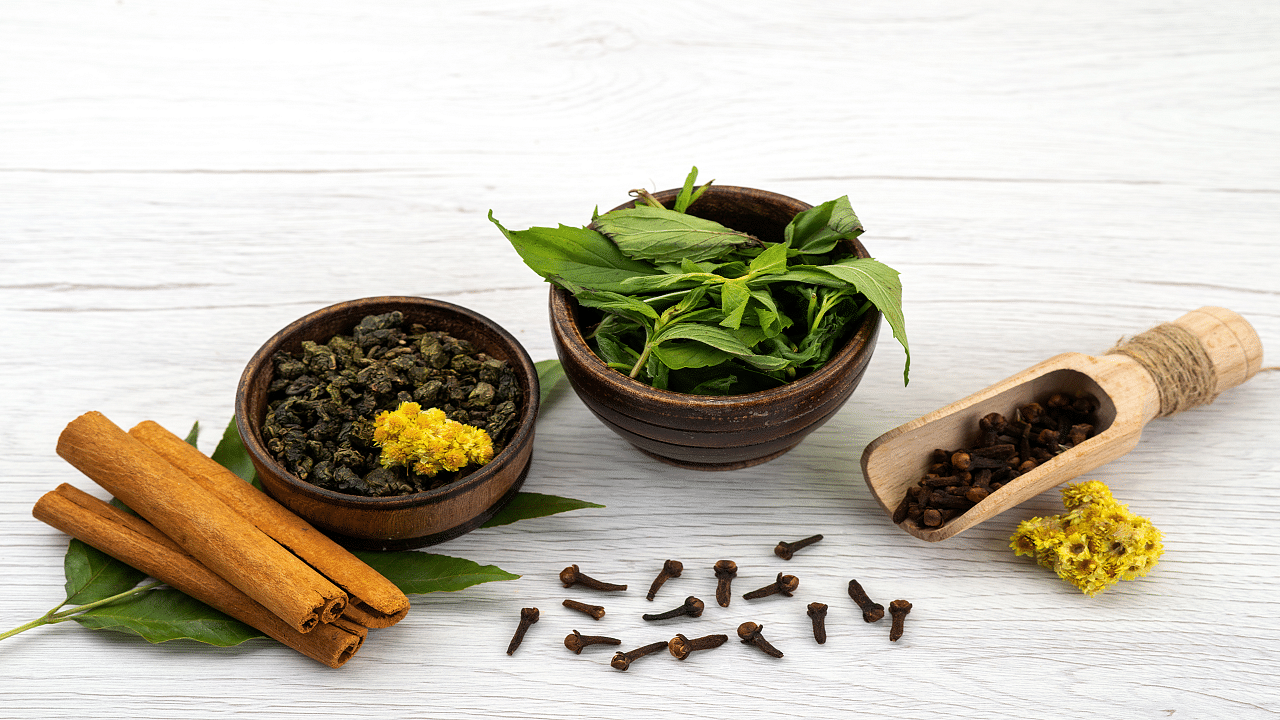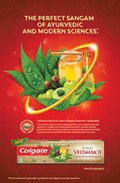
Ayurveda, the traditional system of medicine from India, offers a holistic approach to managing seasonal allergies during the monsoon. It focuses on balancing the body's doshas (Vata, Pitta, and Kapha), strengthening the immune system, and reducing the symptoms of allergies.
Some Ayurvedic Herbal Remedies Beneficial For Managing Monsoon Allergies
-
Tulsi (Holy Basil): Tulsi, also known as Holy Basil, is renowned for its remarkable immune-boosting and anti-inflammatory properties. Incorporating tulsi leaves into your diet or enjoying tulsi tea can effectively mitigate allergic symptoms and enhance the health of your respiratory system.
-
Turmeric: The active compound in turmeric, curcumin, possesses potent antioxidant and anti-inflammatory attributes. Integrating turmeric into your meals or preparing turmeric milk (golden milk) can play a pivotal role in diminishing allergic reactions and their associated discomfort.
-
Ginger: Ginger stands as another exceptional anti-inflammatory herb capable of providing respite from allergies. The consumption of ginger tea or its inclusion in your culinary creations can work towards reducing congestion and inflammation, thereby easing allergic responses.
-
Licorice Root: With its innate anti-allergic and anti-inflammatory effects, licorice root emerges as a valuable remedy. Whether enjoyed as a soothing tea or consumed in powdered form under the supervision of a qualified practitioner, licorice root can effectively alleviate the symptoms of allergies.
-
Triphala: A fusion of three fruits - Amalaki (Indian gooseberry), Bibhitaki, and Haritaki - Triphala plays a pivotal role in supporting digestion and detoxification processes within the body. By aiding these fundamental functions, Triphala contributes to the reduction of allergic reactions. It can be ingested either as a supplement or by adding it to warm water.
-
Neem: Possessing notable antihistamine and anti-inflammatory properties, neem stands as a promising solution for allergies. Consumption of neem tea or neem capsules can significantly contribute to bolstering the immune system's response to allergens.
-
Honey: Local, raw honey has long been advocated in Ayurveda due to its immune-boosting attributes. Regular consumption of a teaspoon of honey can potentially desensitize your body to local pollen, thereby mitigating the impact of allergies.
-
Neti Pot: The utilization of a neti pot, accompanied by warm saline water, presents an effective means of clearing nasal passages and alleviating congestion stemming from allergies. This simple practice can offer considerable relief from discomfort.
-
Steam Inhalation: Inhaling steam infused with eucalyptus or mint oil provides a soothing remedy to relieve respiratory congestion and soothe irritated nasal passages, effectively reducing the impact of allergies on your breathing.
-
Ayurvedic Herbal Formulas: Specific Ayurvedic formulations like Sitopaladi Churna, Talisadi Churna, and Yashtimadhu (licorice) churna can be recommended by qualified Ayurvedic practitioners to manage the symptoms of allergies. These formulations are tailored to address the root causes of allergic reactions and provide comprehensive relief.
Remember that Ayurvedic remedies should be used under the guidance of a qualified practitioner, especially if you have pre-existing health conditions or are taking other medications. It's important to consult with a healthcare professional before incorporating any new remedies into your routine. Additionally, maintaining a balanced diet, staying hydrated, and practising other Ayurvedic lifestyle recommendations can also contribute to managing seasonal allergies.
















